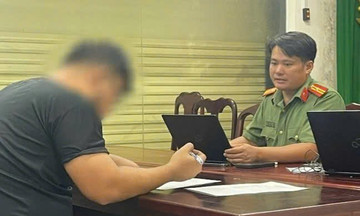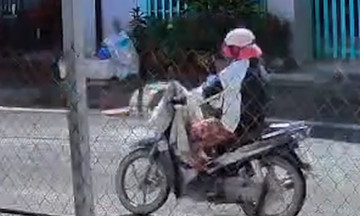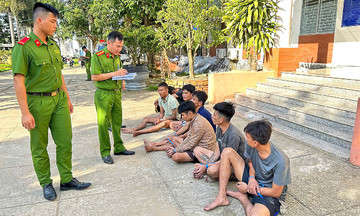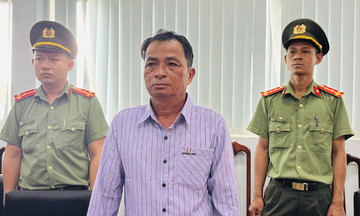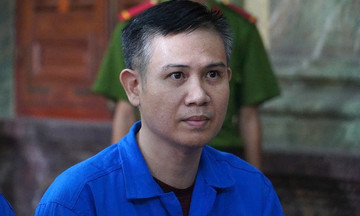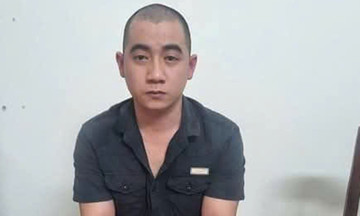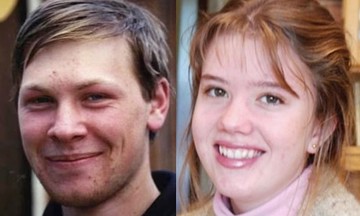In early summer 2024, an announcement from the city of Tanabe, Wakayama Prefecture, sent shockwaves through Japan.
The city revealed it would receive a substantial donation of 1.32 billion yen from the late 77-year-old businessman, Nozaki Kosuke. Nozaki, who dubbed himself "Japan's Don Juan" after the fictional libertine, was known for his flamboyant lifestyle. He married a woman 55 years younger in 2018 but died suddenly at home just 3 months later, with his young widow becoming the prime suspect in his death.
Nozaki's death not only became a sensational case but also ignited a protracted inheritance battle.
The will that ignited the dispute
Before his death, Nozaki entrusted his funeral arrangements to his company employees. In 2019, while sorting through his belongings, they discovered a handwritten will, penned in red ink, stating: "I bequeath all my personal assets to the city of Tanabe - Nozaki Kosuke".
The employees immediately submitted the will to the court. The court-appointed executor informed Tanabe city and Nozaki's relatives of its contents. In 9/2024, Tanabe expressed willingness to accept the donation and began the necessary procedures.
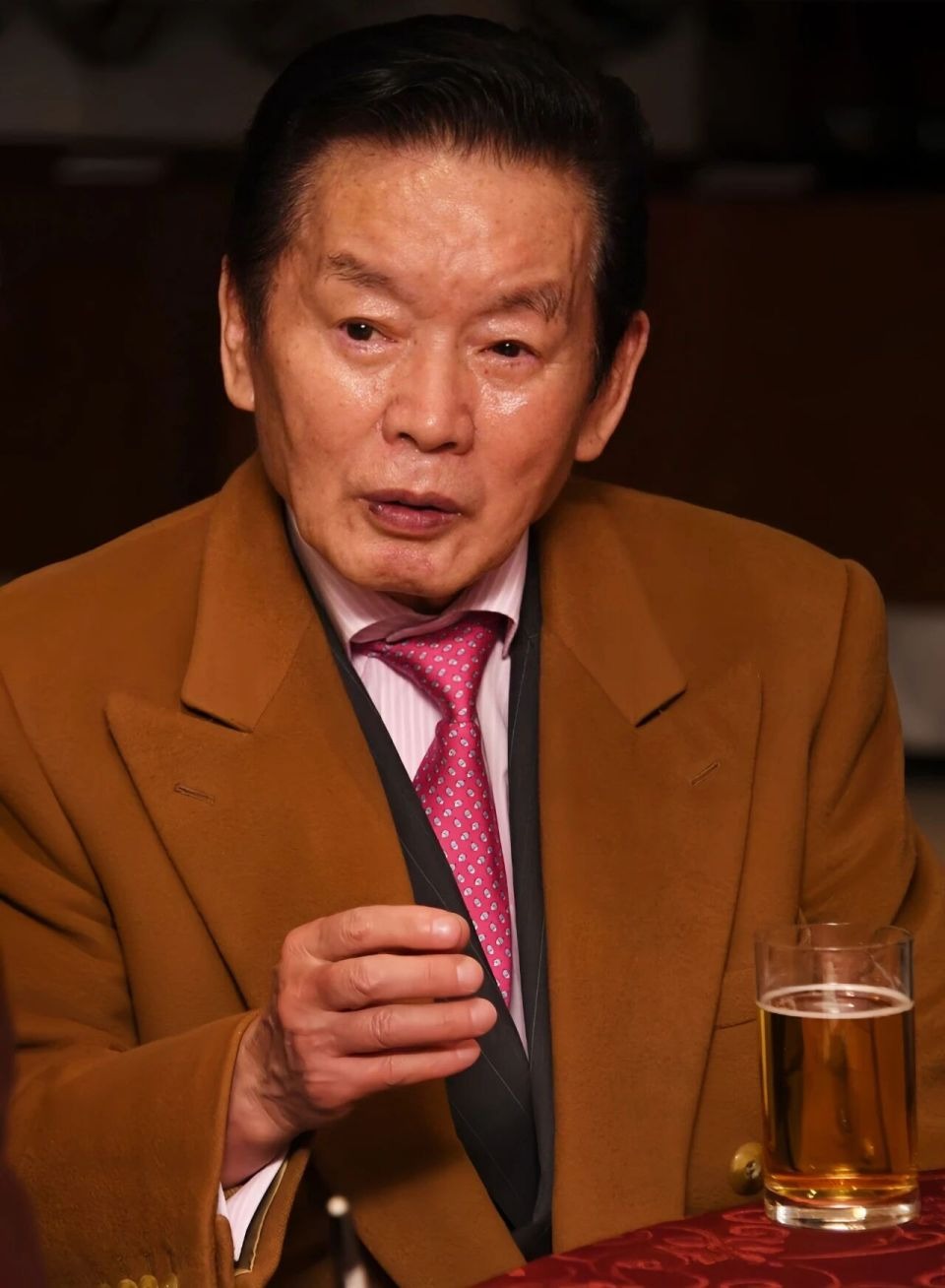 |
Real estate tycoon Nozaki Kosuke. Photo: Global People |
Real estate tycoon Nozaki Kosuke. Photo: Global People
However, seeing the vast fortune about to go to an outside party, Nozaki's 4 siblings filed a lawsuit against the executor in 4/2020, claiming the will was invalid. Thus began a protracted legal battle over the inheritance.
In court, the family's lawyer vehemently questioned the will's form, arguing that such an important document, scribbled in red marker, was unusual. Presenting 3 handwriting analyses, the lawyer highlighted discrepancies between the will's script and Nozaki's usual handwriting, concluding it was "highly likely forged".
Tanabe city countered by presenting debt collection notices written by Nozaki during his moneylending days. Comparing the handwriting, they emphasized the signature's "complete consistency" with Nozaki's writing habits. They pointed out Nozaki's preference for red ink and argued that while not neatly written, the will was carefully composed.
Nozaki's family then shifted their focus to the will's "motive," claiming he had no reason to donate everything to the city and suspecting a sinister plot. However, witnesses called by Tanabe delivered a critical blow to the family's case. The company's former CFO testified: "Chairman Nozaki strongly disliked the idea of his siblings inheriting his wealth. He clearly stated he'd rather donate to underprivileged children than leave it to relatives only interested in money".
The legal battle captivated the Japanese public. One Tanabe resident commented: "For someone who barely paid taxes and operated on the fringes of legality, contributing to his hometown this way is perhaps the best outcome. I hope the city uses the funds wisely, like improving education and childcare."
'Japan's Don Juan'
Nozaki was a controversial figure throughout his life. Born in 1941 into a poor, large family in Tanabe, his early struggles instilled a strong desire for wealth. After dropping out of middle school, he scavenged scrap and worked odd jobs, learning essential survival skills.
Nozaki's first significant earnings came from door-to-door condom sales. He then ventured into high-interest lending, even associating with organized crime. Accumulating hundreds of millions of yen, he transitioned to real estate, becoming a prominent tycoon in Wakayama.
Nozaki never hid his promiscuity. He published an autobiography detailing how he spent around 3 billion yen on over 4,000 women. His lifelong "philosophy": "The reason I became a millionaire is to embrace beautiful women". He had two previous wives, always favoring women in their early twenties with fair skin and attractive appearances.
In 2018, the 77-year-old Nozaki married 22-year-old model Sudo Saki after a 3-month courtship.
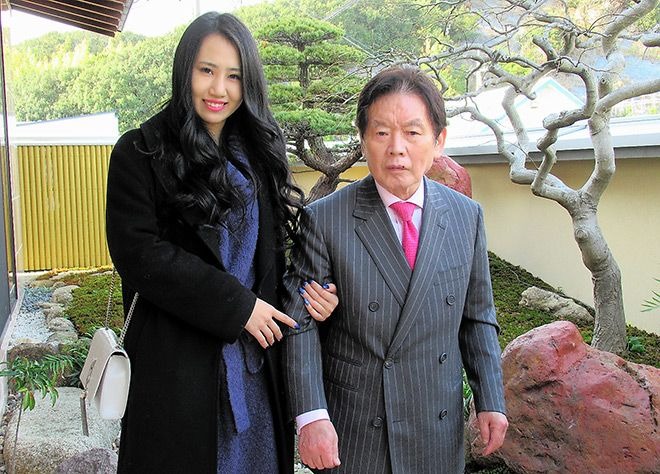 |
Nozaki Kosuke and his wife, Sudo Saki, who was 55 years younger. Photo: Asahi |
Nozaki Kosuke and his wife, Sudo Saki, who was 55 years younger. Photo: Asahi
According to Nozaki's autobiography, they met when he fell at Haneda Airport, and Sudo kindly helped him up. He proposed, saying, "I want to color your life pink. Will you be my last woman?"
Seen as a transaction between "gold digger and sugar daddy," the marriage seemed fitting to outsiders. However, due to Sudo's objections, no wedding ceremony was held. Nozaki revealed he gave Sudo 1 million yen monthly for living expenses but wrote in his diary about his disappointment with her coldness and indifference.
Three months later, the marriage ended tragically.
A mysterious death in the villa
On the evening of 24/5/2018, Nozaki's housekeeper found him dead on the sofa in his villa, clad only in his underwear. An autopsy revealed stimulants in his system at lethal levels. Strangely, there were no injection marks, suggesting ingestion. Suspicion fell on Sudo, the only person with him that night.
The housekeeper told police Nozaki wanted a wedding for appearances, but Sudo refused, leading to constant arguments before his death. Police found suspicious search terms on Sudo's phone: "murder," "how to obtain stimulants," "poison," "perfect crime". They also discovered she had contacted a drug dealer. Traces of stimulants, matching those in Nozaki's body, were found in the vacuum cleaner bag used after his death. Prosecutors theorized Sudo mixed powdered stimulants into his drink.
Furthermore, after Nozaki's death, Sudo quickly assumed control of his company, fired staff, and pocketed 70 million yen as "senior management salary".
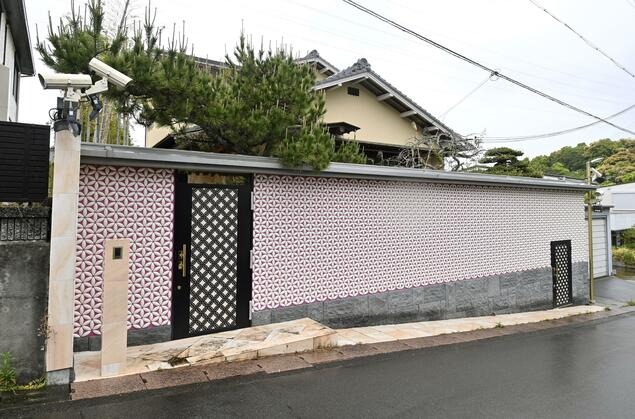 |
Nozaki Kosuke's house in Tanabe, Wakayama Prefecture, on 28/4/2021. Photo: Kyodo |
Nozaki Kosuke's house in Tanabe, Wakayama Prefecture, on 28/4/2021. Photo: Kyodo
With mounting suspicion, Sudo was arrested for murder in 2021. Despite circumstantial evidence, she maintained her innocence. Prosecutors sought a life sentence. Her defense argued she had no motive, receiving 1 million yen monthly, and claimed she obtained the stimulants at Nozaki's request, suggesting he might have self-administered them.
In 12/2023, the Wakayama District Court acquitted Sudo, citing insufficient evidence beyond a reasonable doubt. The verdict acknowledged no evidence of third-party involvement or suicide. The court stated it couldn't rule out Nozaki obtaining the stimulants himself, possibly for purposes other than suicide, and accidentally overdosing. Essentially, they couldn't definitively classify it as murder.
The prosecution appealed. The fate of the woman dubbed Japan's "most wicked woman" remains undecided. While awaiting Sudo's second trial, the inheritance dispute concluded. In 6/2024, the Wakayama District Court validated the will, matching the handwriting to Nozaki's, dismissing the family's lawsuit. Nozaki's assets were transferred to the national treasury, to be received by Tanabe city.
Nozaki's siblings appealed to the Osaka High Court, proposing the bizarre theory that the will was a forged copy orchestrated by Sudo. The court rejected this baseless speculation, upholding the original ruling.
Recently, the Sankei Shimbun reported the family abandoned their appeal, ending the dispute.
Tue Anh (Global People, NHK)



